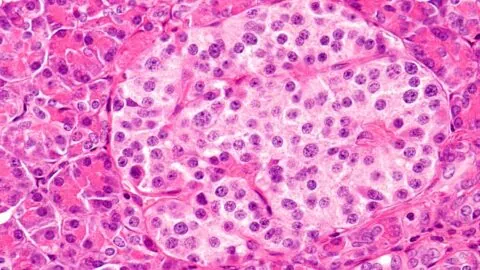February 11, 2025
A new study suggests that damaged mitochondria activate the integrated stress response, which causes pancreatic β-cells, as well as liver and fat cells, to lose their identity and malfunction [1]. Blocking this response had benefits in mouse models. The mitochondria-diabetes connection Like with many diseases, the prevalence of type 2 diabetes grows with age. Therefore,...
January 02, 2025
A team of researchers has outlined a new approach that uses mRNA to prevent senescence and strengthen mesenchymal stem cells (MSCs) against aging before they are transplanted into patients. Stem cells go bad before they can be used The researchers introduce this study by focusing on the translational problems with MSCs, specifically the propensity of...
December 19, 2024
Creating induced pluripotent stem cells (iPSCs) causes mutant mitochondrial populations to change, and researchers have investigated this phenomenon more thoroughly. Easy to mutate Why We Age: Mitochondrial DysfunctionAs they age, the mitochondria in our cells lose their ability to provide cellular energy and release reactive oxygen species that harm cells and cause increasing levels of...
December 06, 2024
Scientists from the Longevity Research Institute (LRI), which was formed by the merger of SENS Research Foundation and Lifespan.io, have achieved expression of an essential mitochondrial gene in the nucleus and proper functioning of the protein. This could pave the way for curing diseases caused by mitochondrial mutations [1]. The fragile mitochondrial DNA The prevailing...
December 05, 2024
In a study published in Aging Cell, researchers have outlined a relationship between mitochondrial fragmentation in skeletal muscle and the loss of strength with age. Broken power plants Why We Age: Mitochondrial DysfunctionAs they age, the mitochondria in our cells lose their ability to provide cellular energy and release reactive oxygen species that harm cells...
October 15, 2024
Scientists have found that human heart tissue is harmed by even a short stint in orbit. This might have implications for future space travel [1]. Fly me to the Moon Space exploration is cool, but the human body was obviously not made for it. All its systems have evolved to function under normal gravity and...







